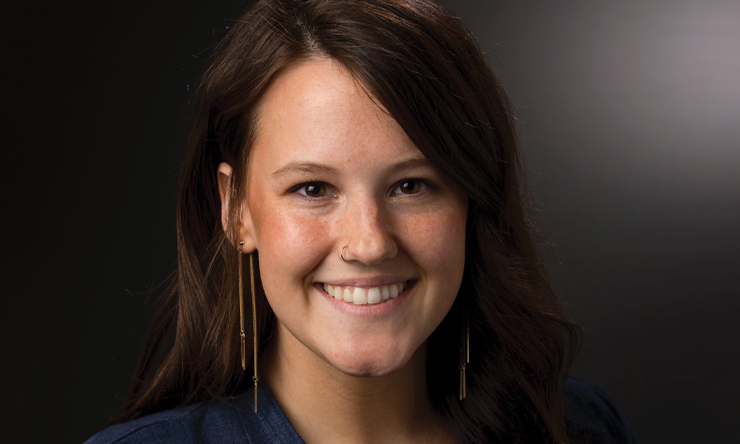In Everyone’s Life, There’s The Summer of ‘67
By John Robinson '68
The following is an abridged version of an article first published in the Winter 2018 edition-Vol. 26-of the Chicago Quarterly Review. Available on Amazon. Used by permission of the author.
My writing career began in a closet.
I had gone there to seek isolation from the noisy house where I had rented a room. I pushed a small table into the empty space and, after bringing a notebook and a fountain pen into the cubicle, I switched on the overhead light, and closed the door behind me. Illumination was supplied by a single bulb dangling from the high ceiling on a long black cord. Since it was a midsummer afternoon in the Midwest, the heat inside the second floor closet was oppressive. I did not care. Moreover, I sought harsh conditions. I believed the combination of heat and isolation would thwart procrastination, strengthen resolve, sharpen focus.
I have no concept of how long I remained in that cramped space. But once I emerged with a soaked T-shirt and a completed paper, things would never be the same.
Until then, I had never taken myself seriously as a writer. I was just another student in class who quickly completed writing assignments with little editing and not a whole lot of thought. But something was different this time. Things had happened to me in the months preceding my entry into that closet. And those things left me open and vulnerable to new and provocative ideas.
I submitted the paper, hoping for a good grade. But I got more than that. The following day when I retrieved my paper at the end of class my professor told me, before I could even check the grade, "You are a born writer."
The rest of my life would be lived on the ramifications of those words.
In the summer of 1967 I journeyed into terra incognita, and before it was over, I learned important things about myself, both emotional and intellectual. That summer I had not returned to my hometown of Chicago, but remained instead at a small undergraduate college -St. Ambrose College-in Davenport, Iowa, to take classes leading, I schemed, to an early graduation. I took two courses: one in psychology, and the other in philosophy. The philosophy class changed my life. It is significant to note that at the time, just before my senior year, I was a business and economics major. But because of that summer course, one year later, after graduation, I jettisoned all participation in my major field of study. From then on, I focused my life on the study of literature, and along with it, on becoming a writer.
Before I entered that life-altering classroom, two significant events had occurred, preparing the way for the ideas I was about to absorb in a course entitled, Philosophy of Man.
During the spring of that year, I had fallen in love with an attractive young woman I'd met in January. Though romance sprang forth by unnatural calculation in early winter, by midsummer it had segued into natural unfettered love. My first love.
The second significant event that occurred before the summer of 1967 was the death of my mother. I was entirely unprepared for it. Nothing in my past could assist me. I found the foundations of my religion and my experience inadequate for understanding her cruel ending. It shook me. It would take a long while before I began to comprehend her fate and my loss.
Love and death. Those were the themes of my emotions during the spring of 1967, and by summertime, they unobtrusively transitioned into my consciousness without notice. My Philosophy of Man course arrived at this crucial moment. The class introduced me to the great existential writers such as Nietzsche, Kierkegaard, Sartre, and Camus, but more importantly the course focused my intellect on the undisguised and compelling realities of love and death. I read. I thought. I dreamed existentialism. For the first time in my life, I was confronted with the unblinkered truths of mortality and existence. I was shaken. What I learned upset and thrilled me. But I also was surprised and somewhat elated that others had thought of what I had been secretly considering in my most serious and internal conversations. They had openly articulated my growing skepticism. Those existential writers asked questions that were regarded prohibitive and sinful by my faith. At that momentous time in my life, I recalled the motto of the great Age of Reason philosophers I had earlier read, derived from Horace's Latin phrase, Sapere aude, or "Dare to know." Now I was daring to know. From then on-damn the consequences-I would be guided by the passions of the mind. By the course's end, I saw my mother's death-along with my new love-from a new perspective. There was a place in the universe for loss and gain, even if both were transitory and phenomenal.
The dramatic alteration in my life required not only the assignment of challenging texts, but also the willingness to read, to comprehend, and to critically write about them. Ideas matured me. Change required it. And though it was true that emotional events played an important role in my openness to philosophical theory, I needed the intellectual stimulation associated with considering the validity of ideas to want to write about them.
I wonder what are the odds today of a fledgling writer taking a course in philosophy at a university, and expanding his intellectual growth to such an extent that he decides to abandon a normal career path for the life of the mind? With the slow and steady disappearance of the traditional liberal arts curriculum from many institutions of higher learning, the odds would appear to be lengthening. And finally, who is willing, in this new age of glam disinformation, to enter a sweltering closet and not reemerge until something true and resonate has been created that changes either the creator or the world outside?
Maybe the title should now be written, "In Anyone's Life, Is There Any Chance Of The Summer Of '67?"
Share This Story




